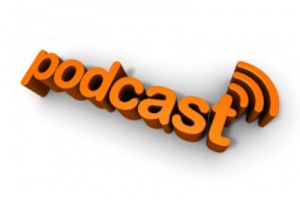Podcasting Empire Built on Tech Talk – 3 Keys to Success
By John Houghton on December 30, 2010

This week, the New York Times wrote a story on Leo Laporte, host of the podcast “This Week in Tech,” generating 250,000 downloads per week, yielding him millions in advertising revenue. Sounds pretty easy, right? Leo’s is an exceptional story, but if you love podcasting and you stick to these tips, you can build an audience which can lead to revenue and influence, or can help promote your company’s products and services.
First Key To Success: Understand Your Audience. It is very important to understand your audience needs and interests and how they go about fulfilling their information and/or entertainment needs. When choosing a topic for your program, there is a lot to think about. Podcasting is all about reaching deeply into niches, so you want to choose a topic that is not so broad that you can’t compete with other media covering the same topic, and not so narrow that the audience will be too small. The format you choose is important too: monologue, interview, panel discussion, or mini-documentary. Many podcasts are found through search (either iTunes or Google). Google’s Adword tool can help you understand search volumes for particular keywords, which can help you understand the metrics of what people are looking for.
You have to also understand why someone would consume your media via podcast versus other media. One key advantage of podcasting is that it seamlessly pushes content to mobile devices, and therefore can effectively reach busy commuters and multi-taskers. This helps you reach the busiest people in society, something that is otherwise hard to do. In the 90s, I loved to listen to books on tape while I ran around town or was working on weekend projects, but the topics were limited. Now a whole other world of deep content is available for me to consume via podcast.
Second Key To Success: Publish on a Schedule. Most people who take up audio or video podcasting lack the commitment to yield fruit. After producing three or four episodes, they realize the level of effort required and quit. Others will produce 10 or 20 episodes and see some returns, but then stop. Leo Laporte, on the other hand, has been publishing regular podcasts for five years, and now has an audience in the hundreds of thousands.
It is also important to keep an editorial schedule and publish on-time. For a weekly podcast, this might mean releasing episodes every Thursday morning, and for a daily news podcast it means releasing every day at the same time. Every weeknight for the last three years, my wife and I have watched the evening news via video podcast – we love the fact that it is virtually commercial-free. We look to NBC, ABC, and CBS. Every night it seems to be a contest to see which network has its download ready at dinner time. ABC and CBS are usually not ready and sometimes don’t put a podcast out for days. Nearly every night, NBC has its act together and releases its podcast around 5pm, so they get our viewership.
This brings up another point: people don’t like low quality content in any medium, which is why network news wins for us. I like network news because it’s more watchable. Good production values don’t have to be extreme, but they will help you build audiences. If you can’t afford video, stick with audio. Businesses need to keep in mind that they are building an experience, and therefore need to think about their brand and the perception they want to create. For individual hobby podcasters, production values don’t matter as much, but keep in mind that low quality content can be painful for an audience to sit through.
Third Key To Success: Promote Your Podcast. Leo already had a good start because he had an audience on the radio and he already had a machine for publishing quality content – two important points – but you can also build a sizable audience without these advantages. Having produced many podcasts on a variety of subjects for the last five years, I find that just by being on iTunes, a podcast will get 50 – 100 downloads per month on its first episode. If the content hits a niche head-on, or the content is music or entertainment-oriented, I’ve seen podcasts get thousands of downloads on the first episode. Every subsequent episode brings new listeners and helps to build a long-term audience.
Audiences are built by regularly releasing quality content, and this can be accelerated through promotion. You are not limited to promoting via new media. For example, Leo promoted his podcast on his radio show (traditional media). How you promote depends on your audience and the media they consume. Banner ads, tweeting, Facebook, direct mail, posters, and cross-promoting at events are all great ideas.
While there is a lot to producing a podcast program, for those who like the medium and have a program topic that lends itself to podcasting, it can be a great way to build personal and/or brand influence. Podcasters who understand their audiences, publish on a schedule, and promote their podcasts are likely to find success in building their own podcasting empires.
Posted in Podcasting
Comments
Comments
Leave a Comment







